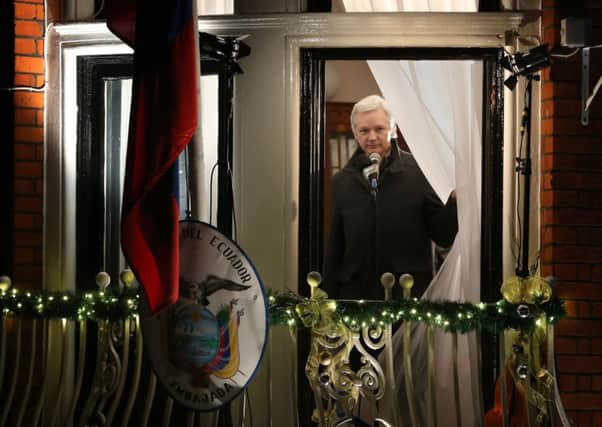Time to close curtains on Big Brother


So much of this seems beneficial, but as computerisation abounds and information explodes, the privacy of the individual is coming under unprecedented pressure. Pioneering thinkers such as Yoneji Masuda and the late Daniel Bell, who first articulated the now-familiar concept of the information society, warned long ago, in the early 1960s, of the huge future risk of draconian surveillance. Surveillance society, the techno-prophets saw, is simply the other side of the information society coin.
Threats to privacy arrive from numerous directions. The state, of course, is chief among sinners. Whatever one thinks about its tactics, the Wikileaks website has established beyond doubt the alarming extent of official spying throughout much of the supposedly democratic world.
Advertisement
Hide AdAdvertisement
Hide AdSuch practices certainly go too far. While we must grant government’s core duty to uphold national security, and should recognise too that the extraction of personal data is integral to the functioning of the welfare state, it remains the case that the routine secret surveillance of the innocent is unnecessary and wrong.
However, it is time to supplement George Orwell’s 1984 and its picture of the “Ministry of Truth” towering over us. Dangers originate increasingly from non-political powers, such as big corporations and a whole smorgasbord of emergent market organisations hustling us impatiently into the new economy. As Manuel Castells, author of The Rise of the Network Society, puts it, we need to resist not only “Big Brother” but a multitude of “Little Sisters” too—ubiquitous agencies that acquire our data, process our info, and profile our personalities. The good old credit card, he explains, is potentially as much a privacy-killer as any identity card scheme.
The problem arises from within, not just without. Mark Zuckerberg made headlines with his declaration that privacy is no longer a “social norm”. Such an attitude might be expected from the co-founder of Facebook, a company frequently embroiled in privacy controversies. But the real issue is that many people, especially young people, seem to agree with him, or at any rate not to care. Thus we face a normative crisis over privacy – an aspect, I would argue, of a wider normative crisis of the information society. How we cope with this will determine the shape of the world which we, and particularly our children, will have to inhabit.
But why indeed should we bother? The question should induce a healthy bout of soul-searching. I believe that the need for privacy is a primeval, perhaps even metaphysical, matter.
It is one of “those subtle essences of humanity which will elude the utmost cunning of algorithms”, to quote a character in Hard Times – a comment directed against the notorious Mr Gradgrind, who represented the calculating, technocratic mentality of Charles Dickens’s day. For the record, the actual quote is “utmost cunning of algebra”, but the point is that some things are so precious, so definitive of our humanity, that they should never be subject to any calculus of political or commercial interests. Perhaps we must recover that fastidious attention to moral boundaries, that Victorian sense of the sacred, even if we would draw the lines somewhat differently today.
Getting our heads in the right place is the first priority, but it is not enough. We need to act as well as think. Civil society organisations such as Privacy International and Ethical Census are dedicated to campaigning on privacy-related issues, and are always on the lookout for new recruits and donors. Pressure groups may not be most people’s cup of tea, but we can surely all make little Custer-esque stands of our own, questioning that cheeky new system at work, networking where possible with companies which pursue “privacy-friendly” policies, or writing to the papers when the next spying revelation breaks or CCTV cameras suddenly pop up in the public lavatory (if any such establishments remain).
The personal is political, as the feminists used to point out, and the politics of personal privacy should to some extent be on every contemporary citizen’s radar. If enough people see the light, we will have the strength to build an information society of which we can be proud.
On the other hand, if present trends continue unchecked, the logical conclusion can only be what we all dread most: an irreversible form of hi-tech totalitarianism.
• Alistair Duff is professor of information policy at Edinburgh Napier University
SEE ALSO